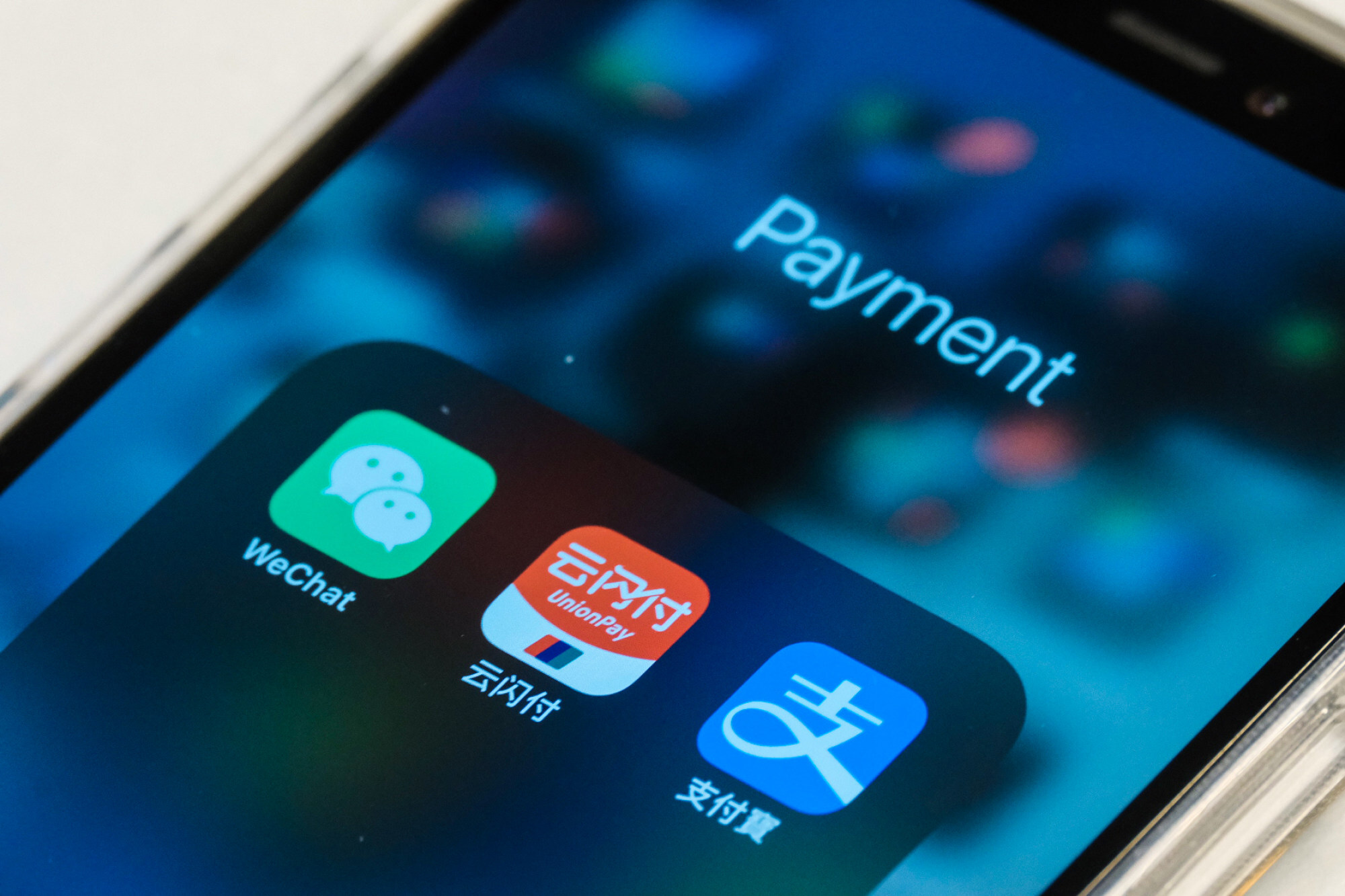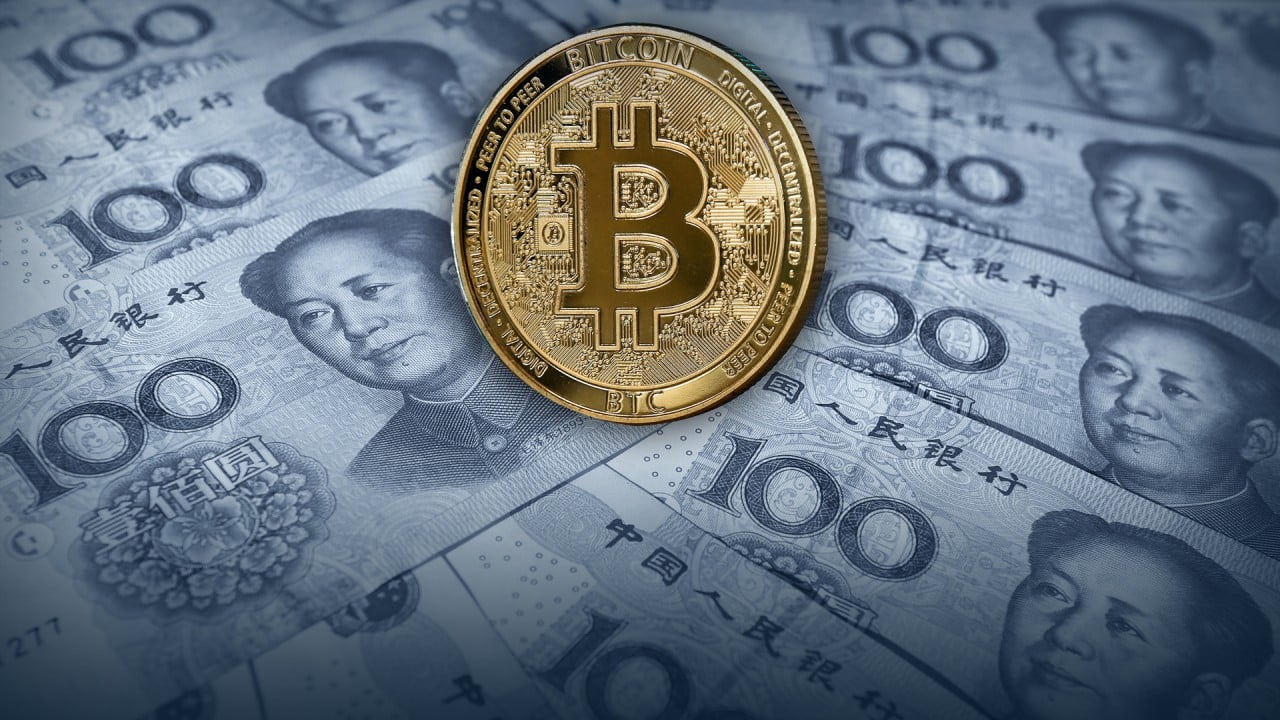
US and China, in separate corners, wrestle with cryptomania’s excesses
- Washington has moved slowly in regulating digital currency, while Beijing recently banned it outright, introducing a state-led version under government control
- Both nations share concerns over the risk of tax evasion, money laundering, terrorism financing and bitcoin’s impact on monetary policy
The craze has inspired Selfiecoins, Potcoins and UFOCoins, fuelled a failed bid to buy a rare copy of the US Constitution, inspired legions of confusing jargon and prompted dozens of nations to consider creating their own official version.
To say the world of cryptocurrency, blockchain and central bank digital currencies is rife with hype and hoopla is an understatement.
“There are a lot of warning signs and flashing lights,” says Gary Gensler, chairman of the US Securities and Exchange Commission. “It’s more like the Wild West.”
But cultlike adherents believe this brave new world is as revolutionary as China’s invention of paper currency a thousand years ago.
One thing most agree on: the US$2 trillion market is not going away any time soon.
As consumers, investors and regulators grapple with the explosion of digital currencies and their underlying blockchain technology, the world’s two largest economies are scrambling to harness its promise while restricting its excesses.
“With both the US and China, there is an idea that this is a big deal,” said Karman Lucero, a China fellow at the Yale University Law School. “But what exactly is the big deal is not clear.”
Not surprisingly, the nations’ approaches and strategies are markedly different, reflecting dissimilar political and financial systems and views on privacy and central control.
Washington has moved slowly in regulating cryptocurrency; Beijing recently banned it outright. China favours a state-led version under direct government control; the US has viewed this warily.
Top bitcoin exchanges stop taking Chinese users as Beijing widens crackdown
Cryptocurrencies allow payments to circulate without governments or banks. Bitcoin’s launch in 2009 inspired some 8,000 imitators with values gyrating wildly. Bitcoin started at zero, then soared to over US$60,000 last year before falling to around US$42,700.
Cryptocurrency’s less volatile counterpart preferred by China is a wholesale version known as central bank digital currencies, or CBDC, essentially the digital version of a nation’s official currency.
Chinese internet users eagerly embraced cryptocurrencies after a May 2013 CCTV documentary, echoing the rapid adoption of digital juggernauts WeChat Pay and Alipay, which is owned by the South China Morning Post’s parent company Alibaba.
Beijing, however has viewed this woolly world of retail cryptocurrency with deep scepticism, considering it a potential threat to social order, law enforcement and a financial system grappling with massive debt, Covid-19 shutdowns and a wobbly property industry.
Since 2013, the central government has successively tightened restrictions on launching, hosting and “mining” cryptocurrency, a process involving massive computing and electrical power, leading to September’s ban. In its place, it has promoted its official digital currency, e-CNY, that analysts say would strengthen its ability to monitor users, spending patterns, location and connections.

“The US and China have taken very different approaches with CBDC and also with crypto. China wants to actively participate in the CBDC space and be a leader, while the US government has taken it slow,” said Jiaying Jiang, a fellow with New York University’s Information Law Institute. “China always wants to be on top of all technological developments to compete against the US and Europe.”
“And,” she added, “everything should be under party control.”
Washington has adopted a wait-and-see approach – although that may be easing – allowing cryptocurrencies to proliferate and tolerating more free-market chaos until its promise and pitfalls are better understood. This is driven in part by regulatory turf battles and a partisan divide, with many Republicans eschewing government control and Democrats favouring more oversight.
In November, US agencies released a “cryptoasset road map” signalling more industry safeguards and regulatory tightening in 2022.
Given cryptocurrency’s disruptive nature and ability to circumvent official institutions, Beijing and Washington share similar concerns over tax evasion, money laundering, terrorism financing and its impact on monetary policy.
US seizes US$2.3 million in ransom paid to Colonial Pipeline hackers
But few experts expect much cooperation on global rules or policy any time soon given their deep geopolitical differences. “There’s a lack of trust,” said Yale’s Lucero. “China is certainly perceived in the US to be one of the largest hackers.”
“And in China there’s a general notion that US wants to stop its rise,” he added. “I’ve heard whispers that the financial arena is the next frontier in decoupling.”
The appeal for criminals is strong, as seen during a US$5 million ransomware attack last year on a US fuel pipeline company, although almost half of the ransom was recovered because the thieves were “not very clever”, said Martin Chorzempa, a Peterson Institute for International Economics fellow.
Supporters say the risks are overblown, pointing to loopholes in traditional payment systems and a report by data provider Chainalysis suggesting that only 0.15 per cent of 2021 crypto transactions involved illicit activities.

E-CNY is much more to Beijing’s liking. All transactions flow through the central government, leaving the Communist Party in pole position, with real-time access to consumers’ spending habits, location, behaviour and preferences.
But that requires wresting momentum from WeChat Pay and Alipay, a duopoly that accounts for more than 90 per cent of Chinese digital payments and over 40 per cent globally.
The Chinese government has a few advantages, however. It tends to get its way. It doesn’t need to make a profit, allowing it to slash costs for retailers and subsidise usage to build market share. And it can expand access to the roughly 5 per cent of Chinese without an internet connection or bank account.
Jiang’s mother, who lives in China’s tropical island of Hainan, was among several thousand Chinese chosen to participate in an e-CNY trial ahead of a planned roll-out for foreigners at the Beijing Olympics next month. She was given 200 yuan (US$31) in return for registering, downloading an app and allowing the system to monitor her behaviour, using it for groceries, Jiang said, which went well.
China’s digital yuan app is topping download charts ahead of Lunar New Year
“It was free money,” said Jiang, “a bit like winning the lottery.”
In 2019, President Xi Jinping called for stronger financial security by “controlling people, watching money, tightening the system firewall”. Official digital currency is also part of the current five-year plan.
While e-CNY’s focus has been mostly domestic – e-CNY’s app topped download charts this month within days of its release – it will gain some global shine at next month’s Winter Games.
“By introducing the e-CNY at the Olympics, the e-CNY will have an opportunity to exchange with numerous foreign currencies in a ‘live’ context,” said Winston Ma, managing partner of CloudTree Ventures and author of The Digital War: How China’s Tech Power Shapes the Future of AI, Blockchain and Cyberspace.
Ma added that Hong Kong could follow China in banning cryptocurrency and issuing an official digital version.
China woos new digital yuan users in major push
China’s longer-term goals for e-CNY, analysts said, include efforts to strengthen the nation as a top financial centre, weaken the US dollar’s role as global reserve currency and gain access to valuable overseas data – seen in its bid to make “connectivity” a linchpin of its Belt and Road Initiative.
An article in China Daily on January 7 said e-CNY could eventually “rival the dominant US dollar”.
Weakening Washington’s financial grip would allow Beijing to circumvent US financial sanctions that target Chinese and Hong Kong officials, state-owned companies and allies like North Korea, Syria and Iran over human rights and geopolitical concerns.
But China faces a steep climb. Global adoption depends on trust that a currency is freely traded and faces limited political manipulation, a challenge given Beijing’s state-directed capital markets, economy and opaque statistics. The yuan currently accounts for just 2.5 per cent of central bank holdings worldwide, according to the International Monetary Fund, compared with the US dollar’s 60 per cent, the euro’s 22 per cent and the yen’s 6 per cent.
Underscoring Washington’s more laissez-faire approach to regulating cryptocurrencies is the view among fans that the future is bright, its underlying blockchain technology – a decentralised database system that makes hacking and counterfeiting difficult – revolutionary and the US financial system resilient enough to handle disruptive innovation.
“We’re in a fight for the future of money: what it looks like, how it operates, who controls it,” said J Christopher Giancarlo, former chairman of the US Commodity Futures Trading Commission.
Regulating cryptocurrency has also been hobbled by the alphabet soup of agencies vying for jurisdiction – including the SEC, CFTC, OCC, FTC, CFPB and FDIC – debating whether it is a commodity, a stock, taxable and what reserves crypto exchanges must hold against a speculative meltdown. A long-delayed report by the US Federal Reserve is expected soon.
Some 87 countries are exploring a central bank digital currency, up from 35 in May 2020, according to the Atlantic Council. US regulators’ so-far tepid enthusiasm differs sharply from China’s, in part because it has less incentive to upend the status quo, analysts said.
Crypto oversight from US regulators could require permission for bank use
“If you have the dominant system, you’re more concerned about losing your advantage,” said Chorzempa. “China has an up and coming system, so it’s more focused on taking more risks with the new technology to gain market share.”
That said, some in Congress are calling for an e-USD to compete with China.
With so much passion, newly minted millionaires and fear of missing out, the cryptocurrency world continues to gyrate. After China’s ban in September that saw computers seized and local officials arrested, fleet-footed “bitcoin refugees” quickly relocated to Kazakhstan, Russia, Singapore and North America.
Texas, with cheap energy and laissez-faire local government, has seen Shenzhen-based firm BIT Mining, Beijing-based Bitmain and Hong Kong-based Poolin, the world’s second-largest bitcoin mining network, unveil plans to establish or expand operations there.
“It’s happening!” Texas Governor Greg Abbott tweeted in June. “Texas will be the crypto leader.”
Mayor Eric Adams of New York City, who took office on January 1, wants to turn the city into a crypto-friendly hub, floating the idea of teaching cryptocurrency studies to its 1 million public school students.
This, despite some 2,000 failed cryptocurrencies. Adding to the bad publicity in November was the failed US$40 million effort to buy an original copy of the US Constitution that saw crowdsourcing crypto investors cry foul after much of their refund money was wiped out by fees.
Still, the newly minted coins keep coming, with PotCoin targeted at the marijuana industry, MoonCoin’s supply based on the Earth-moon distance and TrumpCoin marketed for “patriots”.
Then there’s the “Useless Ethereum Token”, an apparent protest against all the hype, which says the cryptocurrency “transparently offers investors no value, so there will be no expectation of gains”.
“Seriously, don’t buy this,” its creators add.



